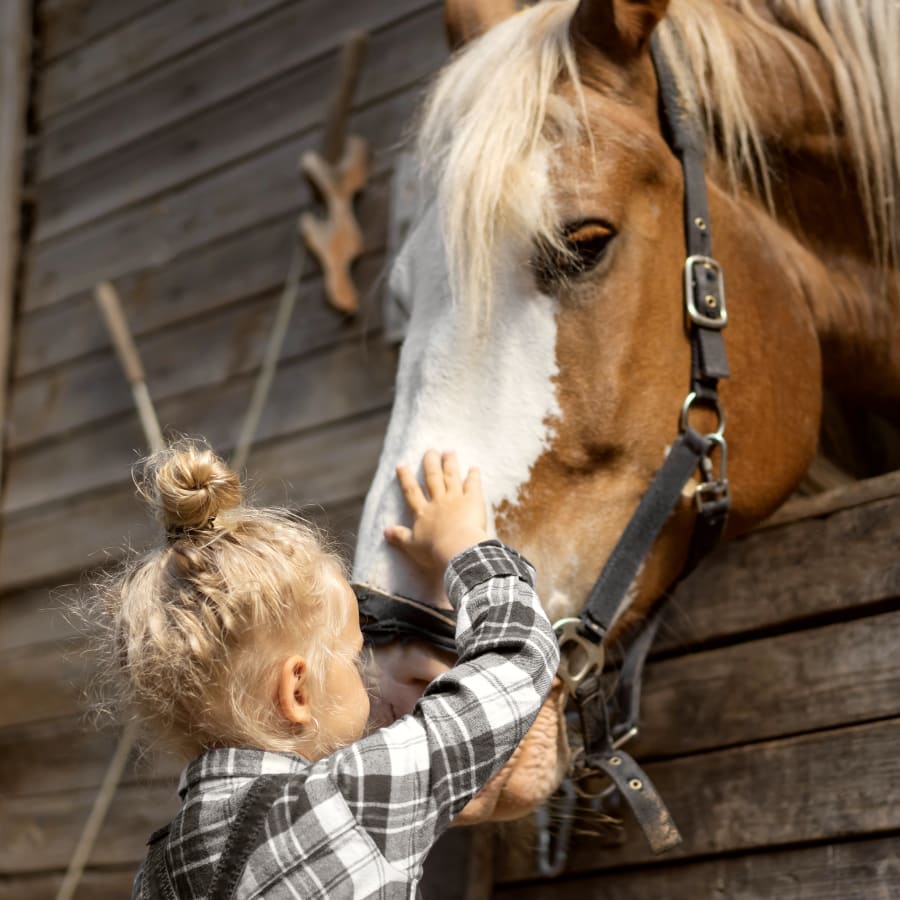Equine Surgery Services
Surgical Services for Horses
Our experienced Gillette vets offer a variety of equine surgeries including soft tissue, and reproductive.
Most large animal surgeries are easier to perform on standing, awake patients and are typically to repair lacerations and injuries sustained through trauma.
Our team practices the most stringent surgical protocols and believes that it is in our patient’s best interest to use a standing procedure whenever possible to help limit the risk of complications from anesthesia.

What to Expect With Equine Surgery
We always keep you fully informed about why we are recommending a particular surgical procedure for your equine friend. Our vets will also take the time to make sure that you understand what to expect during your horse's recovery, how long it will take, and any post-operative care your horse will need.
Surgical Procedures at Red Hills Veterinary Hospital
We perform medical and emergency surgeries to help treat disease and conditions in horses or to repair injuries sustained through trauma.
If your horse requires a procedure we do not provide at Red Hills Veterinary Hospital our vets will refer you to an equine surgeon in the nearby area.
Our Gillette vets routinely perform the following elective and non-elective equine surgeries:
- Reproductive Surgery
A full range of reproductive surgical procedures can be carried out either at your farm through our ambulatory services, or for more complex procedures, by our specialist surgeons at our hospital. These include:
Caslicks surgeries: Caslick surgery is performed on mares to prevent contaminants from getting into the vagina and causing infection, especially when the vulva fails to act effectively as a natural barrier.
Colts/Stallions: We perform castration and correction of inguinal hernias. We also offer urogenital surgery, including cryptorchid surgery (removal of retained testicle), removal of some penile or testicle tumors.
- Wounds
Wounds occur when living tissue has been cut, broken, burnt, torn, or otherwise damaged.
These wounds must be cleaned, disinfected, and appropriately cared for by a qualified veterinarian as soon as possible.
The Surgery Process
We understand that the prospect of equine surgery can be frightening. Please be assured that we recommend surgery only when it is in your horse's best interests.
Our vets and team are specially trained to handle the complicated needs of equine surgery. You can trust that we will do everything we can to make the process safe and comfortable for your horse.
Standing vs. Traditional Surgery
Most large animal surgeries are performed on standing, awake patients and are typically to repair traumatic injuries, such as lacerations. Other common procedures are castration, and minor hoof and lower leg procedures.
Recovery from general anesthesia is the single largest risk for horses after surgery, and standing surgery avoids most of those risks. Also, some surgical procedures are easier to perform on a standing patient.

